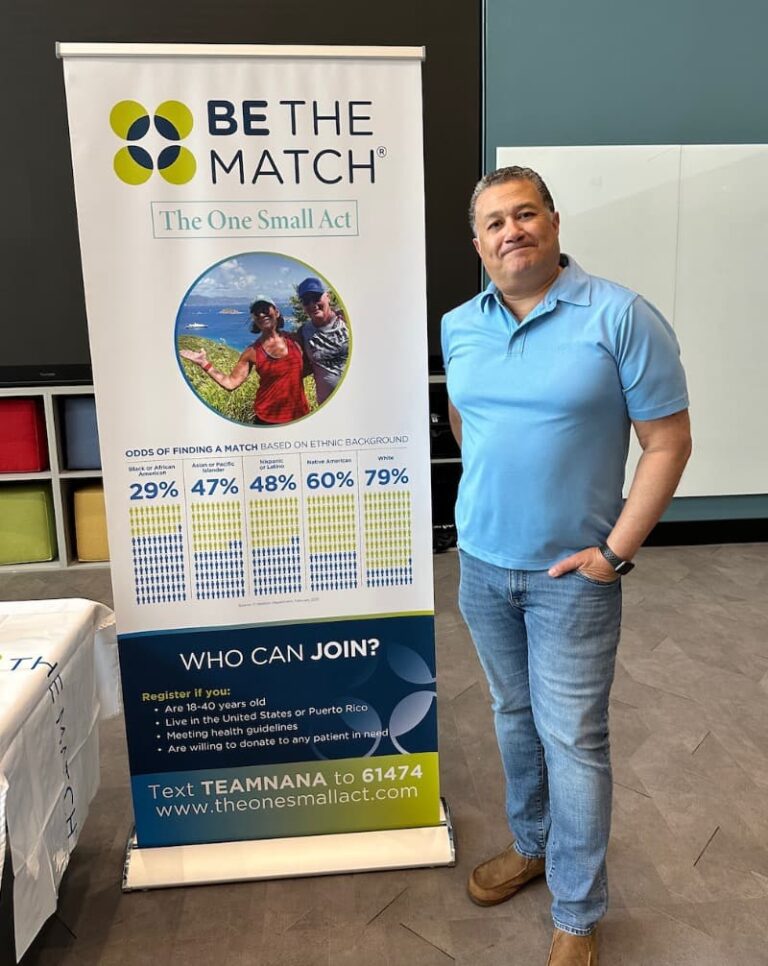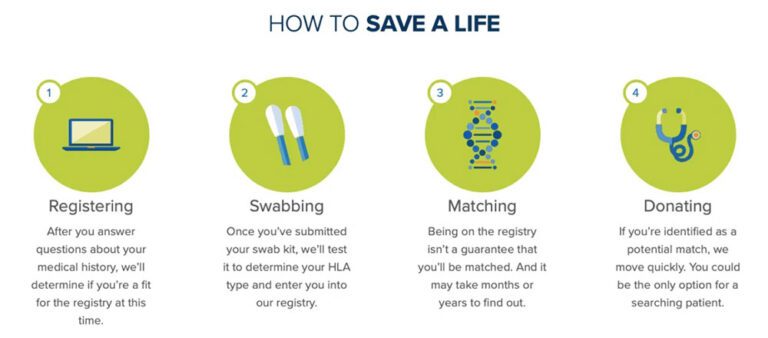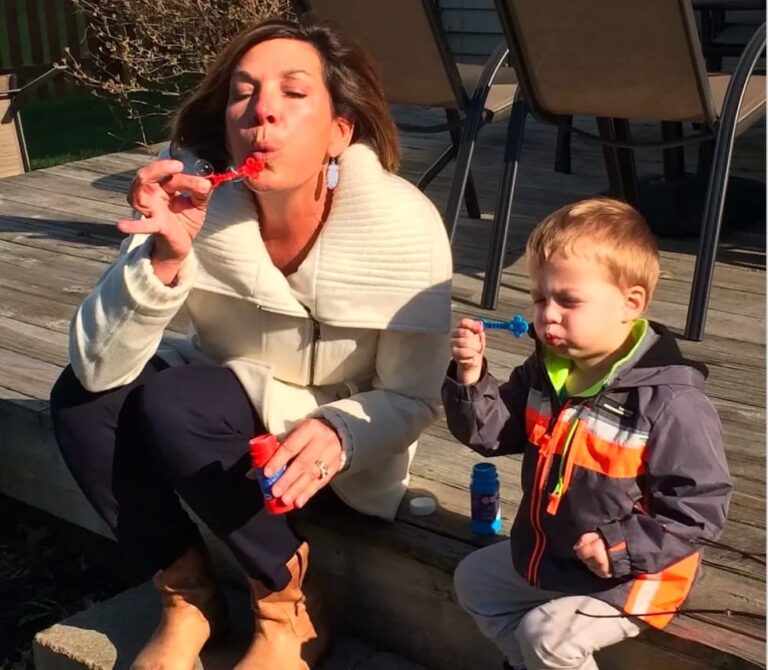Who is 'Be The Match'?
Be The Match – is the leading global partner working to save lives through cellular therapy.
With more than 36 years of experience managing the most diverse registry of potential unrelated blood stem cell donors and cord blood units in the world, NMDP/Be The Match is a proven partner in providing cures to patients with life-threatening blood and marrow cancers and diseases.
Through their global network, they connect centers and patients to their best cell therapy option—from blood stem cell transplant to a next-generation therapy—and collaborate with cell and gene therapy companies to support therapy development and delivery through Be The Match BioTherapies®. NMDP/Be The Match is a tireless advocate for the cell therapy community, working with hematologists/oncologists to remove barriers to consultation and treatment, and supporting patients through no-cost programs to eliminate non-medical obstacles to cell therapy.
In addition, they are a global leader in research through the CIBMTR® (Center for International Blood and Marrow Transplant Research®)—a collaboration with Medical College of Wisconsin, investing in and managing research studies that improve patient outcomes and advance the future of care.
Join this great community!

What is Stem Cell or Marrow Transplant?
How does a blood or marrow transplant (BMT) work?
A blood or marrow transplant (BMT) replaces unhealthy blood-forming cells with healthy ones. Blood-forming cells (blood stem cells) are immature cells that grow into red blood cells, white blood cells and platelets. They’re found in the soft tissue inside your bones, called bone marrow. When they’re mature, they leave the marrow and enter the bloodstream.
Learn more about what to expect before, during and after BMT

Diseases Treatable by Transplants
Groundbreaking research continues to advance the science of transplant so more diseases can be treated with a bone marrow or cord blood transplant. See what diseases are treatable with a transplant.
A bone marrow or cord blood transplant may be the best treatment option or the only potential for a cure for patients with leukemia, lymphoma, sickle cell anemia and many other diseases. As the science of transplant continues to advance, new diseases are being treated with transplant.
Leukemias and lymphomas, including:
- Acute myelogeneous leukemia (AML)—The most common type of acute leukemia with nearly 15,000 new cases found in the United States each year. AML can affect people of any age, but is most common in adults.
- Acute lymphoblastic leukemia (ALL)—There are about 6,000 new cases of ALL in the United States each year. It can affect people of any age, but is the most common type of leukemia in children under 15.
- Chronic lymphocytic leukemia (CLL)—Primarily an adult disease, CLL is very rare in children and young adults. About 15,000 people are diagnosed each year in the United States.
- Chronic myelogeneous leukemia (CML)—A relatively common form of leukemia, it affects more than 20,000 people in the United States with 6,000 new cases each year. Most cases of CML appear in adults.
- Juvenile myelomonocytic leukemia
- Hodgkin lymphoma
- Non-Hodgkin lymphoma (NHL)—Each year about 69,000 people are diagnosed with NHL in the United States. Most of these people are older than 60.
Bone marrow diseases and other diseases when bone marrow fails to work, including:
- Severe aplastic anemia—A rare disease with 600-900 people diagnosed each year. The disease appears more often in eastern Asian countries. It can affect people of any age, but is most common in young adults.
- Fanconi anemia
- Paroxysmal nocturnal hemoglobinuria (PNH)
- Pure red cell aplasia
- Amegakaryocytosis/congenital thrombocytopenia
Inherited immune system disorders, including:
- Severe combined immunodeficiency (SCID, all types)—SCID is a group of inherited immune system disorders that are present at birth. They can become life-threatening within the first year of life if left untreated. In the United States, about 1 in 100,000 babies are born with SCID.
Wiskott-Aldrich syndrome (WAS)—WAS is an inherited immune system disorder that is present at birth. It affects mostly boys. In the U.S. about 1 in 100,000 boys are born with it.
Hemoglobinopathies (diseases with poorly functioning red blood cells), including:
- Beta thalassemia major
- Sickle cell disease (SCD)—Sickle cell disease is an inherited disease of the red blood cells. In the United States, it affects about 70,000-100,000 people and is most common among African Americans and Hispanics
Inherited metabolic disorders, including:
- Krabbe disease (GLD)—GLD is very rare. Only about 40 children are diagnosed in the United States each year. Most often it appears in the first months of life (early-onset). There is also another form of the disease that doesn’t show until later in childhood or even into teenage years (late-onset).
- Hurler syndrome (MPS-IH)—Occurs in about 1 of every 100,000 babies born. If not treated, children born with this disease usually die by 5 to 10 years of age.
- Adrenoleukodystrophy (ALD)—Both boys and girls can be born with ALD, but boys are more likely to have symptoms. One out of 3 boys born with ALD has the most severe form of it, cerebral X-linked ALD. The form is rare, affecting about 1 in 20,000 individuals worldwide.
- Metachromatic leukodystrophy (MLD)—MLD appears most often in babies and young toddlers, but it also occurs in older children and adults. MLD is rare. It occurs in about 1 in 40,000 to 160,000 individuals worldwide.
Myelodysplastic syndromes and myeloproliferative disorders. MDS are a group of diseases that affect the bone marrow and blood. About 19,000 people are diagnosed with MDS in the United States each year.
Multiple myeloma and other plasma cell disorders
Familial erythrophagocytic lymphohistiocytosis and other histiocytic disorders
Certain other malignancies or cancers
About Be The Match
Be The Match has a team dedicated to providing information and support to you before, during and after transplant. You can contact our Patient Support Center to ask questions you may have about transplant, request professional or peer support, or receive patient education materials. Call or email us for confidential, one-on-one support from caring experts. All of our programs and resources are free.
Check out the frequently asked questions.
Call: 1 (888) 999-6743
Email: patientinfo@nmdp.org
